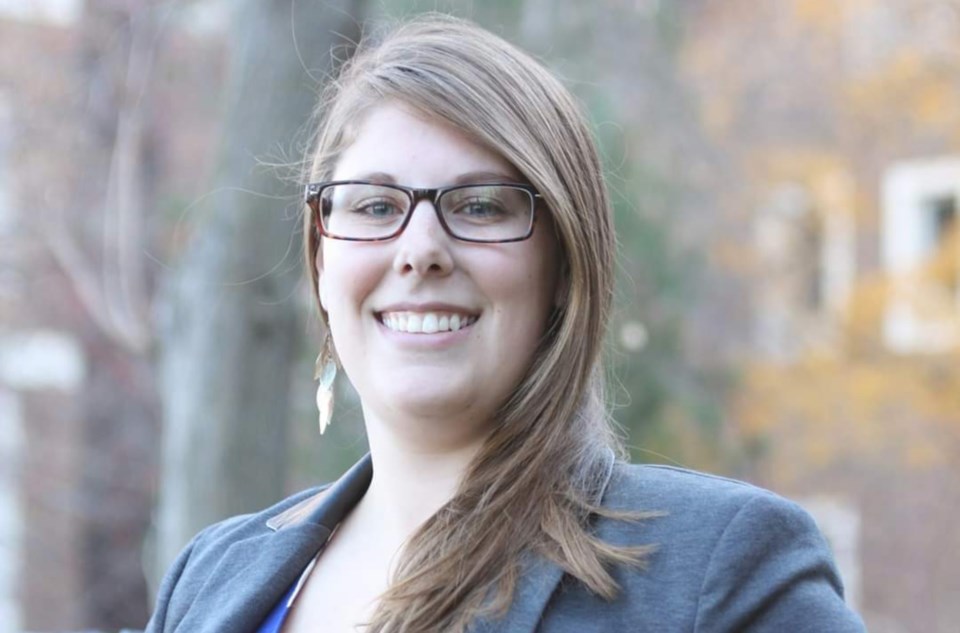Saultite Jenna Congdon is taking her experience in animal cognition to the next level with her latest project at the Toronto Zoo.
After years of graduate studies and teaching as a sessional instructor at the University of Alberta in Edmonton, the Algoma University graduate has taken up a two-year, post-doctoral fellowship with York University in order to develop artificial intelligence for orangutans.
“We are designing artificial intelligence (AI) to be able to monitor both the health and behaviour of the orangutans at the Toronto Zoo, so we can make sure they’re doing well, and also be able to watch how they’re interacting in their everyday lives,” Congdon said.
The animal behavioural scientist has been working remotely from her home in Edmonton, utilizing a small network of cameras to observe a group of six orangutans, ranging in ages 14 to 53, at The Toronto Zoo.
Congdon says she’s currently obsessed with Budi, a huge, shaggy 15-year-old male orangutan that’s just becoming sexually mature. She also enjoys watching Sekali, a 28-year-old female who is attached to a blanket. Puppe, the 53-year-old mother to Budi, is by far the most popular orangutan with the Toronto Zoo community.
“It’s a very long and tedious process right now, but the output is going to be so incredible, because something that the zoo is going to have as a product is this program that’s capable of 24-7 monitoring to make sure that the animals are living their best lives,” said Congdon. “The orangutans, they’re critically endangered. They’re not going to live in the wild for much longer unless we make some massive changes.”
“The only way for them to be living right now is in conservation sites like the zoo, so it’s nice to have these things in place to make sure that we’re still able to give them the best lives possible.”
The two-year fellowship - funded by the Wildlife Conservancy through the Mitacs Accelerate funding stream - concludes in March 2023. The team working on the project, which includes AI company EAIGLE, hope to eventually apply the artificial intelligence to endangered quadrupedal species such as lions and tigers.
“This AI project is just something that’s not happening at all at the Toronto Zoo, and really not much in North America at all,” said Congdon. “A lot of the AI that’s out there for monitoring welfare is really agriculture and things, so it’s really exciting to be able to be designing something for the zoo, and for these conservation efforts.”
Congdon credits Algoma University for her chosen career path.
“It’s pretty exciting to basically be a professional nerd first of all, but I’ve just always loved animals,” said Congdon. “I went to school at Algoma [University] - I stayed home when everyone else was kind of running away, and I loved my experience at Algoma.”
“It is the reason why I’m doing everything that I am, because I fell in love with psychology there, and understood that psychology is not just clinical aspects - it’s brain and behaviour. So that kind of routed me into being able to study animal cognition.”
Congdon’s new project developing AI for the Toronto Zoo allows her the opportunity to combine her love of science and animals into a worthwhile endeavour.
“It’s such an honour to be able to do this work, because I really have loved animals my whole life. I love science - I absolutely am a scientist to my core,” she told SooToday. “So it is so nice to be able to keep putting those two things together, and especially now in a way that’s so important from the conservation angle.”
